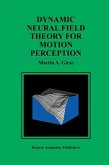Predicting the Future: Completing Models of Observed Complex Systems provides a general framework for the discussion of model building and validation across a broad spectrum of disciplines. This is accomplished through the development of an exact path integral for use in transferring information from observations to a model of the observed system. Through many illustrative examples drawn from models in neuroscience, fluid dynamics, geosciences, and nonlinear electrical circuits, the concepts are exemplified in detail. Practical numerical methods for approximate evaluations of the path integral are explored, and their use in designing experiments and determining a model's consistency with observations is investigated.
Using highly instructive examples, the problems of data assimilation and the means to treat them are clearly illustrated. This book will be useful for students and practitioners of physics, neuroscience, regulatory networks, meteorology and climate science, network dynamics, fluid dynamics, and other systematic investigations of complex systems.
Dieser Download kann aus rechtlichen Gründen nur mit Rechnungsadresse in A, B, BG, CY, CZ, D, DK, EW, E, FIN, F, GR, HR, H, IRL, I, LT, L, LR, M, NL, PL, P, R, S, SLO, SK ausgeliefert werden.









